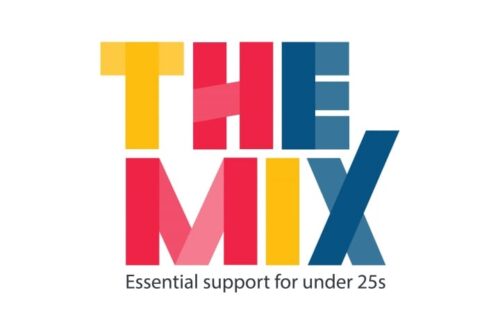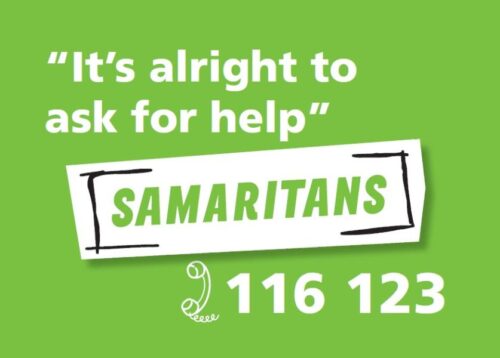Call us now 01926 402 498
Anxiety
Symptoms, diagnosis, help and advice.
1 in 6
young people will experience an anxiety condition at some point in their lives.
Anxiety is an extremely common mental illness that affects a large proportion of young people today. It can affect anyone and is absolutely nothing to be ashamed or embarrassed about. Anxiety is an important emotion as it tells us when we are in danger or if something is wrong. Feeling anxious in certain situations is absolutely normal.
You might feel anxious about: Exams; an interview; moving schools or house; etc.
However, if this feeling is more permanent and very strong, it can make everyday life extremely difficult and may mean that you have an anxiety condition.
What are the symptoms of an Anxiety Condition?
Common symptoms of an anxiety condition include feeling:
- Worried
- Upset
- Sick
- Shaky/dizzy
- Like you might faint or pass out
If these feelings become very strong then you may experience what is known as a panic attack. You might also have unpleasant thoughts, believe that you are “going crazy” or fear that something bad is going to happen to you.

Anxiety can come in lots of different forms so one person’s experience of the condition can be very different to someone else’s.
Treatment for an anxiety disorder depends on the type of anxiety someone has and how seriously this is affecting their day to day life. The first step for everyone though is going to visit your GP. They will assess your situation and point you in the right direction to get the help you need. Like with all mental health issues, there is very rarely one cure – which is rubbish as this would make our lives much easier. The key is to discuss all the options suggested to you and find the one that works for you.
Then there’s the other side of the coin too. If the person you care about suddenly experiences an anxiety or panic attack, it can be worrying and scary to witness and you might feel like anything you say or do has no effect or even makes things worse. The good news is, there are some simple things you can do to help that person get through their feelings of anxiety.
Different Types of Anxiety
Generalised Anxiety Disorder or GAD
Feeling anxious about a wide range of situations and issues rather than one specific thing.
Social Phobia
Intense fear of being in certain social situations.
Panic Disorder
Regular panic attacks that can occur at any time. The body experiences a very sudden rush of intense psychological and physical symptoms.
Agoraphobia
Fear of being in situations where escape is impossible or help is unavailable. As with most mental conditions agoraphobia varies from person to person.
Phobias
An irrational fear of an object or situation. A person can have a phobia of anything at all. Phobias are usually brought on by an event or experience. A phobia can be mild or very severe so it is important not to make light of someone’s phobia, however strange or unusual it might seem.
Post-Traumatic Stress Disorder or PTSD
PTSD is a result of a very stressful, frightening or distressing event. Someone with PTSD relives this event in the form of flashbacks, nightmares or very intense emotions.
Obsessive Compulsive Disorder or OCD
As the name suggest OCD is having obsessive thoughts and or compulsive behaviours. OCD is a term thrown around to describe somebody who likes to have things clean, tidy or in a certain way but the reality of living with OCD is much more complex than that as the video below explains.
Tackling Anxiety
Psychological Therapy
CBT – Cognitive Behavioural Therapy – Counselling which works around the process of making the link between your thoughts, feelings, behaviour and what’s going on around you. CBT aims to help you find ways to challenge and overcome negative thoughts and feelings.
ERP – Exposure and Response Prevention – this therapy involves the patient facing his or her fears and then refraining from giving into their compulsive behaviours. This is primarily used for people diagnosed with OCD.
DBT– Dialectical behavioural therapy- DBT specifically focuses on providing therapeutic skills in four key areas. First, mindfulness focuses on improving an individual’s ability to accept and be present in the current moment. Second, distress tolerance is geared toward increasing a person’s tolerance of negative emotion, rather than trying to escape from it. Third, emotion regulation covers strategies to manage and change intense emotions that are causing problems in a person’s life. Fourth, interpersonal effectiveness consists of techniques that allow a person to communicate with others in a way that is assertive, maintains self-respect, and strengthens relationships.
Medication
There are a few different prescription drugs that doctors might decide to prescribe to you. Some of them treat the symptoms and others will treat your general mood. Find out more about the different types of medication for anxiety here.
Complementary Therapies
Complementary therapies are designed to work on the symptoms of anxiety. Complementary therapies aren’t counted as ‘medical treatment’ but for some people they are really useful and can be used alongside other treatments or medication.
Mindfulness – This is a practice that helps you to focus on the present; being aware of your feelings and the immediate world around you. This can be useful for those with anxiety as it helps you to not focus on the dreadful things that MIGHT happen but rather focus on the here and now. Read more about Mindfulness.
Meditation – More and more people are taking up meditation as a form of relaxing the mind and body helping you to, as corny as it may sound, be at one with yourself. Some people will choose to do this regularly as part of their daily routine. Find out more about meditation and mental health.
Yoga – Yoga is another increasingly popular past-time but many people are put off as they see it as a form of exercise for the insanely flexible. Yoga works in the same way as meditation. It’s a way to release physical and mental tension. Find out more about yoga.
Supporting someone with Anxiety
Empathise with their situation
Try not to dismiss that person’s feelings as silly. Sometimes it can be hard to understand where their feelings came from or why the thing that set them off had such an effect on them but remember anxiety I s not rational. Try to remember times when you have felt very anxious and act in a way that might have reassured you in that moment. It’s also a great thing to make an effort to learn more about anxiety. You’ve already done a great job just by reading this article! Go you!
Be kind and calm
A calming and reassuring presence will help more than you realise. Having someone stable around helps that person more than you might realise. You can even try and do some breathing exercises with that person for example – breathing in for five seconds and then breathing out for 5 seconds.
Be patient
Try not to pressure that person into firstly getting past the way they are feeling or force them into situations that might make their anxiety worse before they are ready.
Ask what you can do to help
Everyone is different and everyone will have different things that make them feel better.
Encourage them to get help
If the person hasn’t done so already, and the problem is becoming difficult for them to manage then encourage that person to get professional advice and support.




